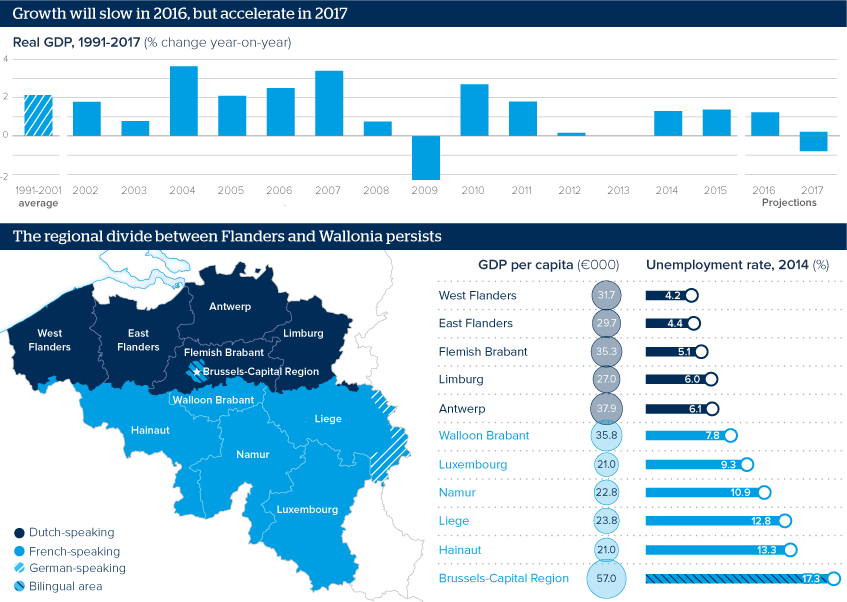Belgium's economic gap is unlikely to shrink soon
The large economic and linguistic divide will continue to dominate politics
Source: Eurostat, OECD
Outlook
The economic gap between Dutch-speaking Flanders in the north and French-speaking Wallonia in the south remains large, with Wallonia lagging behind. In contrast to the dynamic and entrepreneurial economy in Flanders, Wallonia suffers from the decline of its steel and mining industry, although it is becoming increasingly diverse with a strong focus on sectors such as biotechnology.
Overall, growth is expected to slow this year to 1.2% from 1.4%, but inflation will increase to 1.6% from 0.6%, thanks to a rise in indirect taxes. A package of tax cuts and increases will reduce labour costs and thereby contribute to an increase in employment in the long term.
Impacts
- Belgium's open economy could be hit hard by Brexit, if slower growth across Europe reduces demand for Belgian exports.
- The linguistic divide will continue to complicate politics and calls for greater decentralisation in Flanders will not abate.
- Financial transfers across regional and linguistic boundaries are limited, affecting public service provision especially in Brussels.
See also
- Uneven reform stays Belgium's competitiveness - Feb 10, 2017
- EU-Canada CETA dispute undermines Commission's power - Oct 27, 2016
- New Belgian terrorist networks could emerge - Apr 22, 2016
- More graphic analysis
